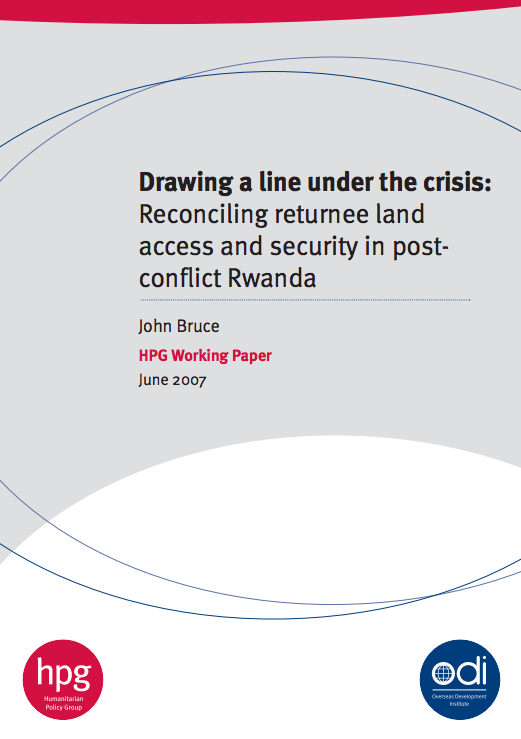The Overseas Development Institute (ODI) is the UK's leading independent think tank on international development and humanitarian issues.
Mission
Our mission is to inspire and inform policy and practice which lead to the reduction of poverty, the alleviation of suffering and the achievement of sustainable livelihoods in developing countries.
We do this by locking together high quality applied research, practical policy advice, and policy-focused dissemination and debate.
We work with partners in the public and private sectors, in both developing and developed countries.
Values
- Independence: ODI’s research, public affairs and policy advice are independent from its funders, and staff are able to challenge donor thinking and policy and the wider development consensus.
- High quality: Best practice, innovative approaches and continuous improvement are ensured in research, policy advice and public affairs.
- Fairness, diversity and equality: All staff and partners are treated fairly and with respect. ODI employment, disciplines and processes are appropriate for an institute focused on international development.
- Working together: There is continuous effort to foster better relationships throughout the organisation.
- Transparency and accountability: There is open reporting on the use of public funds, with full communication of our work to our donors, research subjects and partners.
- Sustainability: Resources are used in a sustainable way that reflects consciousness of the impact on the environment. The organisation works in a way that is sustainable, backed by commitment to its long-term viability.
Members:
Resources
Displaying 91 - 95 of 111Drawing a line under the crisis: Reconciling returnee land access and security in postconflict Rwanda
This report is part of a broader comparative effort by the Overseas Development Institute’s Humanitarian Policy Group on Land Tenure in Conflict and Post-Conflict Situations, which aims to inform and improve the policy and practice of humanitarian action and to inform related areas of international policy. It seeks to understand how land issues affect and are affected by violence and conflict resolution, what responses are appropriate and what lessons can be learned from specific contexts of land tenure interventions, both during and after conflict.
The new broker: beyond agreement
This document discusses the challenges and dilemmas in multi-stakeholder partnering work, particularly the development and use of metrics to measure progress. It is aimed particularly at partner organisations, and individuals hired to aid in the facilitation, monitoring or management of partnerships as independent, ‘external’, third-parties.
Drawing a line under the crisis: Reconciling returnee land access and security in post-conflict Rwanda
This report is part of a broader comparative effort by As the author worked with colleagues in Rwanda,
two other important dimensions of the Rwandan
experience became clear. Refugee return and land
access in Rwanda has been an extraordinarily
complex matter, with some refugees leaving just in
time for others returning to take up their homes and
lands. Rwanda has important lessons to teach us
about the need to maintain flexibility in dealing with
complexity, and raises questions about whether
Liens entre milieu rural et milieu urbain, migration saisonnière et réduction de la pauvreté en Asie. Le rôle de la migration circulaire dans la croissance économique.
Le caractère « plurilocal » des systèmes de subsistance ruraux est nettement plus prononcé qu'on ne le pense souvent, de nombreuses personnes du milieu rural passant une partie de l'année hors de leur village dans des emplois non agricoles. Contrairement à une théorie déjà ancienne, la migration circulaire (ou saisonnière) dans un même pays ou entre pays voisins est maintenant reconnue comme le type de migration des pauvres. Cela n'est nulle part plus évident qu'en Asie.
Rural-urban links, seasonal migration and poverty reduction in Asia. The role of circular migration in economic growth
Rural livelihoods are far more multi-locational than is often assumed with many rural people spending a part of the year outside the village working in non-farm occupations. Contrary to early theory, persistent circular or seasonal migration within countries or between neighbouring countries is emerging as the migration pattern of the poor. Nowhere is this more evident than in Asia.





